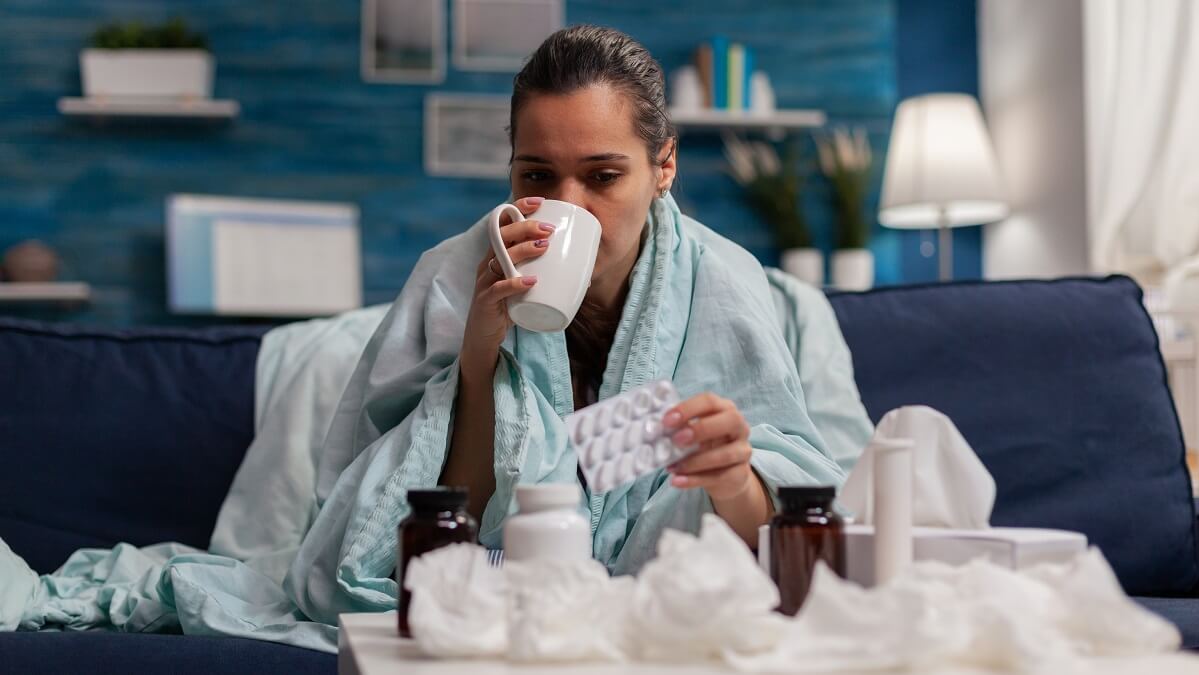Australia is in the midst of a bad flu season, with many people saying they keep experiencing flu-like symptoms over and over in what is been dubbed the ‘yo-yo flu’.
Experts say the nasty flu season is due to a number of factors, including several viruses that are circulating simultaneously, low community immunity still lingering from the pandemic years and low flu vaccine take up.
This year however, many people are reporting flu symptoms that return almost immediately after being cleared.
What is happening?
Pharmacist Sylvia Thai told the Sydney Morning Herald she and her family had been sick intermittently for months now, and that she believes it is a by-product of low natural immunity in the community.
“We’ve been constantly sick, and it’s been going around in a cycle. We keep giving it to each other,” she said.
“Our immune systems haven’t had a chance to grow and all of a sudden, the world is normal and all the germs are coming out, and our bodies don’t know what to do.”
Dr Nicole Higgins, chair of the Royal Australian College of General Practicioners (RACGP), told the Today program the bumper flu season had a lot to do with an explosion in cases of respiratory syncytial virus (RSV) and ongoing cases of COVID-19 (Australia is still averaging over 700 COVID cases per day).
“They [RSV, COVID and flu] have got very similar symptoms, but they’re actually different germs,” she said.
“People seem to just be getting one after the other.”
Australia has seen more than 10,000 extra RSV cases so far this year compared to 2022. We have also recorded more than 250,000 lab-confirmed flu cases, with the season beginning in March this year rather than April or May.
What can you do to protect yourself?
First, if you notice any symptoms of a cold or flu, stay at home. If you have to leave home when you are sick, make sure you wear a mask and try to avoid contact with people at higher risk of severe illness.
Avoid contact with people who are sick as much as possible. Wear a mask if you are unable to stay away from other people in crowded indoor spaces.
Make sure you wash your hands often, especially before eating or after using the bathroom. Use soap and water and wash hands for at least 20 seconds.
If you have to cough or sneeze, do it into your elbow rather than your hands. Clean frequently touched surfaces around your home and workplace, particularly if you know people are ill.
Dr Higgins said that as always with diseases, prevention is better than cure.
“The first thing is we need to prevent getting sick in the first place,” she said.
“That means immunisation, get the flu jab, wear the mask if you’re going out, keep washing hands and if you’re unwell, stay home.
“The rest is about self-care.”
Have you had the flu or a virus more often this year? Have your symptoms been more intense? Let us know in the comments section below.
Also read: Warning for hay fever sufferers

